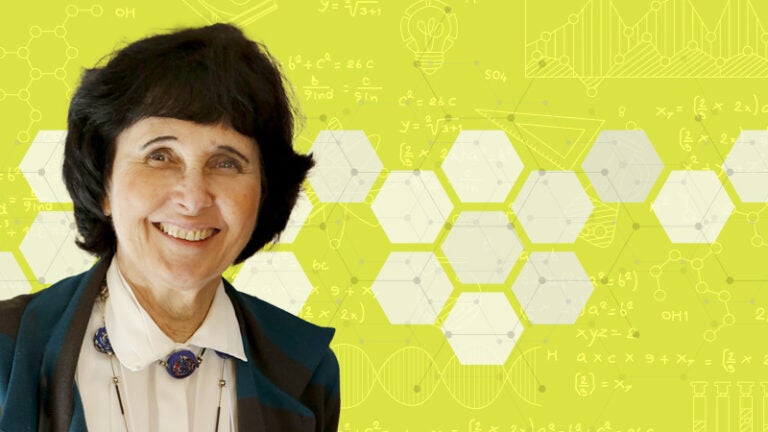
Trailblazing chemist advances gender equity in the physical sciences
When chemist Hanna Reisler first moved to the United States in 1972, she found herself struggling to balance the demands of being a mother with those of an industry ill-equipped and unprepared for women. This experience would lead the trailblazer to become a catalyst for progress at USC.
Reisler, University Professor and professor of chemistry at the USC Dornsife College of Letters, Arts and Sciences, has pioneered progressive and impactful change in the fields of science and engineering. She credits her strong community of fellow women scientists and their passion for gender equality with forging more equitable conditions for women pursuing STEM (science, technology, engineering and math) careers.
Reisler, who holds the Lloyd Armstrong, Jr. Chair for Science and Engineering, is most proud of her role in creating a unique and enduring program at USC called Women in Science and Engineering (WiSE). Founded in 2000, the program aims to address the underrepresentation of women in the fields of science and engineering, which Reisler personally witnessed and experienced during her extensive career.
“We often say that it takes a village to effect change, and I can attest that our very small village was tenacious, committed and united in its demand that this change should be led by those most affected — the women faculty,” she said.
“It is also gratifying that the WiSE program was recognized by the 2013 USC Mellon Culture of Mentoring Award,” added Reisler, whose contributions to WiSE led her to receive the Provost’s Mentoring Award in 2010.
Young scholar encouraged to pursue education, chemistry
Growing up in Israel influenced Reisler’s decision to pursue education; she describes the culture as having “a strong emphasis on education.”
“The many Holocaust survivors who arrived at that time knew that education was the only thing that could not be taken away from them,” Reisler said. “Both men and women were encouraged to get their education early and become self-reliant.”
Reisler specifically chose to pursue a PhD in physical chemistry at Israel’s Weizmann Institute of Science after an advisor recommended her to the program. A renowned expert in her field, she now studies the mechanism of laser-initiated chemical reactions, using high-powered lasers and molecular beams to understand the dynamics of fast-evolving chemical states.
Title IX leads to gender equity progress in science
Reisler recalls that, even after the establishment of Title IX, few women worked in the physical sciences. She recounts that Title IX mainly impacted sports at first, and it took the efforts of other trailblazers at the Massachusetts Institute of Technology to shed light on the issue of gender equity in science, which resulted in top universities responding.
Then USC provost Lloyd Armstrong Jr. took steps to direct a generous donation to the university toward increasing representation of women in STEM fields, and Reisler participated in every step of the program’s development.
One of the reasons Reisler is so passionate about gender equity revolves around the issue of child care and maternity leave. Immigrating to the United States with a 15-month-old son, Reisler found balancing work and family needs challenging.
“We had no family or other support system when we arrived in L.A.,” she said. “Before Title IX, nobody in academia addressed issues such as child care and maternity leave, [and] while it was too late for me, the WiSE program is still advocating for these programs at USC.”
Chemist aims for progress in both science and equity
Reisler cites the gender wage gap as the next battlefront in the fight for gender equality.
“Despite compelling anecdotal evidence that salary inequities exist in several schools,” Reisler said, “we have yet to see an in-depth and transparent examination of this issue, including a clear understanding of the criteria that are used to determine when inequity exists.”
Reisler’s future career plans involve continuing in her research endeavors and educational activities, along with continuing her contributions to WiSE.
“I am lucky to have a very rewarding career as a scientist, and hopefully, I can help make it easier for other women in spite of the ever-present challenges,” she said. “What kept me going for so many years [was my] excitement about science and discovery, my optimism, keeping a sense of humor in times of adversity, the high quality of the people around me, friendly colleagues and having a sense of community.”